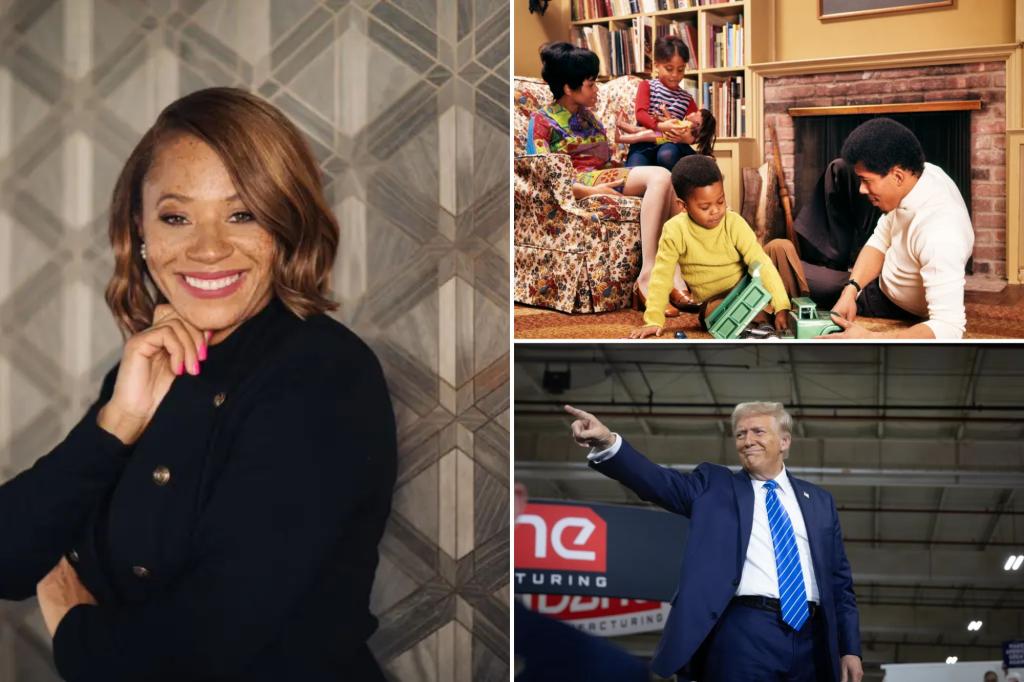
According to London-based investor and environmentalist Adam Sweidan, a “black elephant” is a mix of two metaphors: “a black swan” — an unlikely, unexpected event with enormous ramifications — and the “elephant in the room” — a problem that is visible to everyone, yet no one still wants to address it.
The Democratic Party has a “Black Elephant” problem they don’t want to talk about, African Americans to comprehend and voters to respond to on election day.
That problem involves the growing support for former President Donald Trump from African Americans.
Recent reports reveal that black men in particular are supporting President Trump in record numbers.
Despite the media’s 24/7 and nearly eight-year campaign to label Trump racist, he is poised to receive the highest percentage of African-American votes in 50 years.
Unfortunately, for Democrat leaders, many African Americans have realized that the Democrat Party not just took them for granted but their policies are causing them damage.
Although the United States elected its first black president in 2008 — and now has its first black female presidential candidate — many may ask: why did black Americans thrive more under the Trump administration compared to the Obama/Biden and Biden/Harris years?
Despite black Americans’ consistent loyalty to the Democratic Party, many argue that their communities are worse off today than when the last Civil Rights Act was signed in 1968.
Back then, nearly 80% of families had two-parents; today, nearly 80% exist in fatherless homes.
Even worse, a recent study by Cassandra Dorius at the University of Michigan revealed that “multiple partner fertility” has become the norm among black families.
Her work showed that 59% of African-American mothers had children from different fathers, the highest of any ethnic group.
“Raising children who have different fathers is a major factor in the intergenerational transmission of disadvantage,” Dorius noted.
Taking the “Black Elephant” metaphor to the local level, in 2022, Karen Bass became the mayor of Los Angeles, marking the first time in American history that the nation’s four largest cities — Los Angeles, New York, Chicago and Houston — were simultaneously led by black mayors — all Democrats.
However, their elections have not resulted in their black communities thriving. In fact — as public-school performance suggests — just the opposite has happened.
In Baltimore, headlines were made last year when zero students in 23 public schools tested proficient in math (black students make up 63% of the public-school population).
This pattern is similar in other urban centers controlled by Democrats.
In 2022, nearly 80% of Chicago Public Schools students could not read at grade level while the school system recorded one of its highest graduation rates ever.
Academic declines in the black community have created a paradox for Democrats.
Their most loyal political contributors for local and national elected offices — teachers unions — ensure School Choice options are restricted where Democratic Party leaders hold sway.
Party leaders, particularly black democratic leaders, adhere to this unholy alliance despite the fact that nearly 80% of black parents support school choice options like Education Savings Accounts and School Vouchers.
However, there are cracks in the dam that have Democrats concerned — and both mainstream media and academia are able to keep African-American voters from paying attention.
The lack of support for school choice drove State House Representative Mesha Mainor to become the only black member of the GOP among Georgia’s 236 state lawmakers, and the first black Republican woman to ever serve in the Georgia General Assembly.
Support for school choice was the prime reason Kenneth Paschal ran for a State House seat in Alabama and, in 2021, he became the first black Republican elected to the state Legislature in 140 years.
Other black leaders have followed suit, “tremors on the ground” and political swings unprecedented in my lifetime.
If these swings turn into a flurry, the “Black Elephant” ignored for so long will finally trumpet its glory as blacks vote for best interests — rather than party loyalty.
And both African Americans and Donald Trump could emerge the victors.
Kendall Qualls is an Executive Faculty-in-Residence at Crown College School of Business. He was a Republican candidate for governor of Minnesota in the 2022 election cycle.

